As a pet parent, navigating the world of canine nutrition can be a labyrinth of "dos" and "don’ts", leaving one perplexed about the dietary boundaries that guarantee the wellbeing of their four-legged companions. It’s a common scene in many households: you’re enjoying a snack, and your pup is giving you those big, pleadful eyes hoping for a tidbit. But before you hand over a piece of your pecan pie, it’s crucial to understand the impacts such foods can have on your dog’s health. Pecans, those buttery nuts loved by humans, are often found in various dishes, especially desserts. But the question arises – can dogs eat pecans, or is this nut a no-go for their treat jar?
Understanding what foods are safe for your dog is not only about keeping their tails wagging but also about ensuring they lead a healthy, vibrant life. So let’s uncover the surprising truth about whether dogs can snuggle up to the pecan family or if this is a nut they need to crack away from.
The Nutty Truth About Pecans and Dogs
The answer to whether pooches can chow down on pecans is not as straightforward as one may hope. Pecans belong to a category of foods that, while not inherently toxic like some of their fellow nuts, are riddled with potential health risks that every dog owner should be aware of.
Related article; can dogs eat kiwi
Nutritional Profile of Pecans
Pecans are loaded with antioxidants, healthy fats, and vitamins providing a powerhouse of nutrition for humans. However, just because they’re a healthful snack for us, doesn’t mean the same applies to our furry friends.
Related article; can dogs eat cabbage
Potential Hazards of Pecans for Dogs
Let’s break down the potential risks and why serving up pecans to your dog could be playing a game of Russian roulette with their health:
Related article; can dogs eat watermelon
- Gastrointestinal Distress: Pecans have high fat content, which can cause gastrointestinal upset in dogs.
- Obstruction Hazards: The size and shape of pecans can pose a choking hazard or cause intestinal obstructions, particularly in smaller breeds.
- Toxicity Concern: Moldy pecans contain tremorgenic mycotoxins which can cause seizures and neurological issues.
- Contribution to Obesity: Their caloric richness makes them a contributing factor to unhealthy weight gain and obesity in dogs.
The Case of Moldy Pecans: A Hidden Danger
While pecans in their freshest form already pose sufficient risks, the danger escalates when they become moldy. This isn’t a minor inconvenience; it’s a serious health threat. Mold on pecans produces tremorgenic mycotoxins, which can cause tremors and potentially severe neurological issues. Imagine a toxin so potent that it can send your dog into seizures – that’s what these mycotoxins are capable of, and it’s not something you want to gamble with.
Pecans and Pancreatitis
The high fat content does more than upset your dog’s stomach – it can be a straight path to pancreatitis. This inflammation of the pancreas can be life-threatening, requiring urgent medical attention. It’s a painful condition that can leave lasting damage, and unfortunately, pecans are just the type of snack that can trigger such a reaction.
Safe Alternatives to Pecans for Your Dog
If after understanding the risks, you still want to treat your dog to something nutty and nutritious, fret not. There are safe alternatives that can satisfy your dog’s cravings without the dangers of pecans.
Dog-Friendly Nuts and Seeds
Embrace these safer nutty delights and steer clear of the pesky pecans:
- Pumpkin seeds (unsalted and roasted)
- Sunflower seeds (shelled and unsalted)
- Peanuts (unsalted and not in the form of peanut butter with xylitol)
Fruits and Vegetables as Treats
Fruits and veggies can be a great source of vitamins for dogs too. Here are some you might consider:
- Apples (cored and seeded)
- Carrots (great for their teeth!)
- Blueberries (antioxidant-rich)
Knowing Your Dog’s Limits
Not all foods suit all dogs in the same way. Just as humans can have food sensitivities, so can our canine counterparts. Always introduce new foods slowly and in moderation to see how your furry friend’s system reacts.
When Accidents Happen: Pecan Ingestion Emergency
Accidents happen; we know that. If you find your dog has gobbled up some pecans despite your best efforts, here are the steps you should take:
- Stay Calm: Keeping a clear head is crucial for your dog’s health and your own peace of mind.
- Assess the Situation: How many pecans did they eat? Were they moldy? How is your dog behaving? This information is vital for your vet.
- Contact Your Veterinarian: Get professional advice or go to the nearest veterinary emergency clinic.
- Watch for Symptoms: Vomiting, diarrhea, lethargy, or tremors are red flags that require immediate attention.
Regular Veterinary Check-Ups
Maintaining regular vet check-ups is the key to preempting emergencies and catching any problems early. Ensuring your dog maintains a balanced diet and receives regular health screenings is the base for a long and healthy life together.
Educating Others: Sharing Knowledge for Dog Safety
Knowledge is power, and in the case of our pups’ health, sharing what you know can make a world of difference. Educate fellow pet owners on the potential dangers of pecans and other foods to create a community of well-informed, responsible pet parents.
Promoting Dog Health and Nutrition Online
Whether you’re a savvy blogger or just love sharing on social media, spreading awareness about canine nutrition can help prevent accidental poisonings and promote overall health.
Joining Pet Health Forums
Engaging in online pet health forums allows you to both learn and educate, giving you the tools to provide the best care for your dog and help others do the same.
Creating Informative Pet Care Content
If you’re passionate about pet health, consider creating content that highlights these critical topics. Whether through videos, articles, or infographics, your voice can make a significant difference in a pet’s life.
Conclusion: Pecans and Pups Don’t Mix
Navigating the do’s and don’ts of your dog’s diet is a vital part of being a responsible pet owner. Pecans, although delicious and nutritious for humans, can be perilous for our four-legged friends. The risks far outweigh the benefits, and with plenty of dog-safe alternatives available, it’s a snack better left out of your pup’s reach.
By sharing knowledge on dog-safe foods, monitoring your pet’s diet, and keeping up with veterinary check-ups, you are ensuring your canine companion’s safety and long-term health. Remember, a treat for us is not always a treat for them. Let’s keep our pantries pup-proof and our dogs healthy and happy.
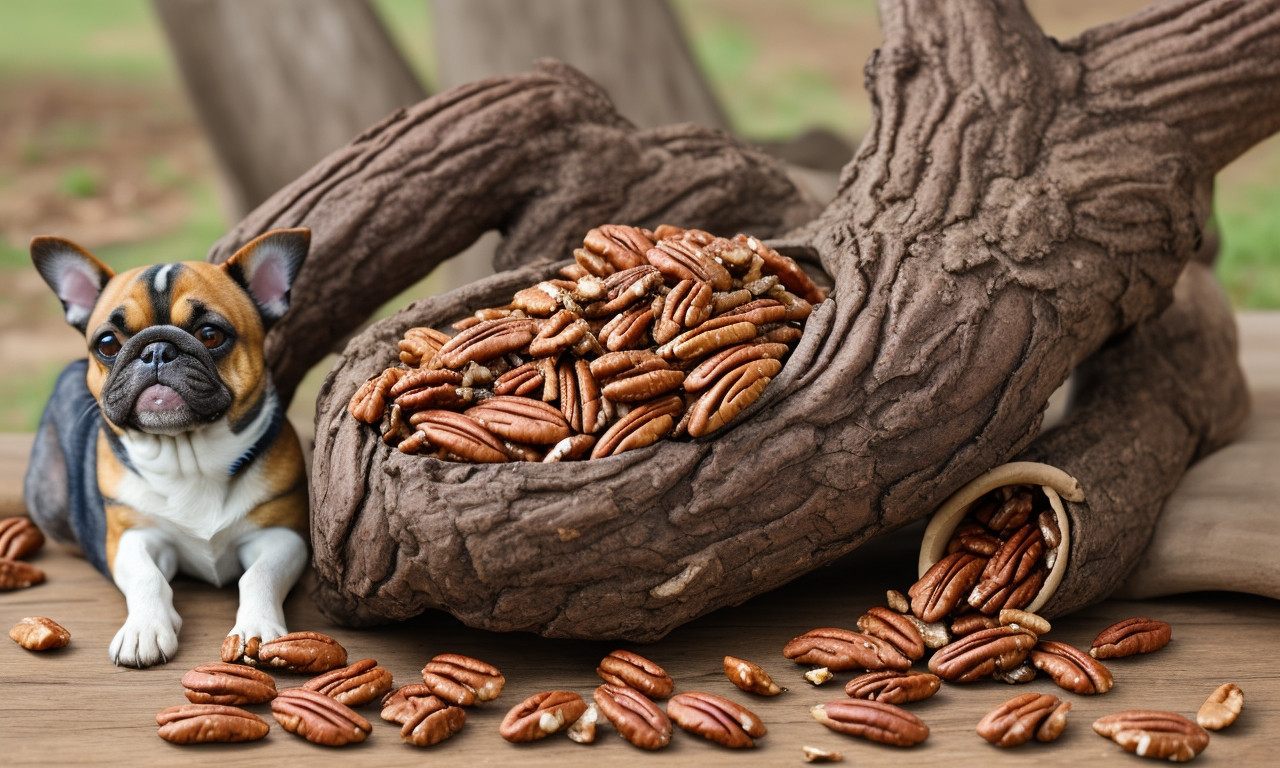
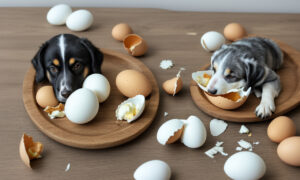
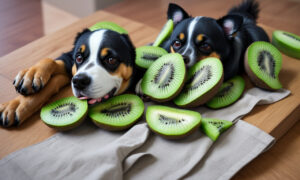
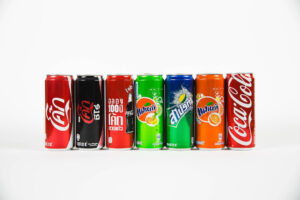
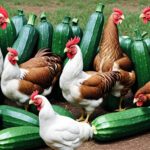



[…] Before we delve into whether dogs can eat eggshells, understanding their nutritional content is essential. Eggshells are rich in minerals, primarily calcium carbonate, which is crucial for maintaining healthy bones and teeth in dogs. But the wonders don’t stop there; they also contain small but significant amounts of magnesium, fluoride, and other trace elements beneficial for your pet’s health. Related article; can dogs eat pecans […]